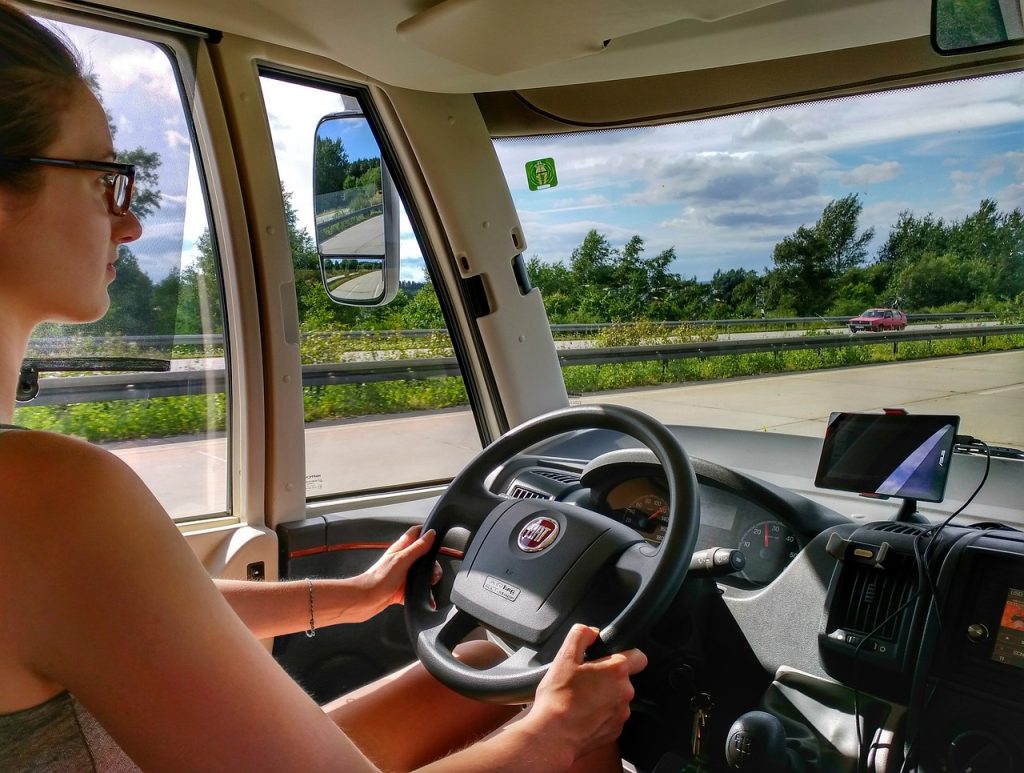Options, Challenges, and Choosing the Right Coverage
Trading brick-and-mortar for boundless horizons, the RVing lifestyle beckons with freedom, exploration, and the unique rhythm of an untethered existence. But beneath the sun-kissed vistas and open roads lies a crucial, often overlooked aspect: health insurance.
Unlike settled homeowners or renters, RVers traverse diverse landscapes, facing a distinct set of challenges when it comes to securing health coverage. Finding a plan that’s both comprehensive and flexible enough to adapt to their nomadic journey can feel like navigating a winding mountain road.

Understanding Health Insurance Needs as an RVer
For RVers, picking the right health insurance isn’t like packing your essentials – it’s more like charting a course across diverse landscapes. Several key factors become your compass, guiding you towards the plan that fits your unique journey.
The Wide-Open Frontier: Coverage Area
As a nomad, state lines are mere suggestions, so nationwide coverage is a must. Imagine cruising along the Pacific Coast Highway, only to discover your plan doesn’t cover that sudden earache in Oregon. Nationwide coverage ensures peace of mind and access to care wherever your wheels take you.
Finding Your Tribe: Provider Network
Imagine needing a doctor in a remote Wyoming town – will your plan’s network be there for you? A broad provider network is crucial, offering access to quality care across different states. Think of it as having a network of trusted doctors and hospitals readily available, no matter where you park your RV.
Budgeting for the Journey: Financial Considerations
Let’s not sugarcoat it – health insurance costs can be a bumpy road. Factor in your budget when making your choice. Consider premiums, deductibles (the amount you pay before insurance kicks in), and out-of-pocket expenses to find a plan that fits your financial landscape.
Navigating Pre-Existing Conditions: Don’t Get Sidetracked
For many RVers, pre-existing conditions can be a roadblock on the insurance journey. Research each plan’s coverage carefully and understand how they handle your specific conditions. Don’t hesitate to seek professional guidance to ensure you choose a plan that provides the necessary coverage.
Exploring Your Options: A Diverse Insurance Landscape
Much like the varied terrain RVers encounter, health insurance comes in different forms:
- Traditional plans: Think comprehensive coverage, but potentially higher costs and limited network options.
- Catastrophic plans: Ideal for those in good health seeking basic coverage for major emergencies. Lower premiums, but hefty deductibles.
- Short-term plans: A temporary solution for those in transition, offering flexibility but limited duration and coverage.
- Health sharing plans: Not technically insurance, these plans share healthcare costs among members. Consider them an alternative for specific needs or beliefs.
Remember, choosing the right plan is as personal as customizing your RV. Carefully consider these factors and research your options to ensure a smooth, well-covered journey on the open road.
Demystifying the Maze: Finding Your Perfect Health Insurance
Sifting through health insurance plans can feel like navigating a labyrinth, but worry not, intrepid RVers! Here are some tools to help you chart your course:
Become a Savvy Explorer: Online Resources and Comparison Tools
Embrace the internet’s vast landscape of resources! Government websites like HealthCare.gov, insurance company websites, and independent comparison tools like NerdWallet or Policygenius can be invaluable allies. These platforms allow you to filter plans based on your needs, budget, and coverage area, saving you time and effort.
Telemedicine: Your Virtual Oasis in the Healthcare Desert
Imagine: feeling under the weather in a remote location, miles from the nearest doctor. Telemedicine becomes your oasis, offering convenient access to healthcare professionals through video or phone consultations. Perfect for minor illnesses, medication refills, or even mental health consultations, telemedicine keeps you connected to care wherever you roam.
Remember:
- Research early: Start researching plans well before your current coverage expires.
- Read the fine print: Don’t just compare premiums, delve into deductibles, out-of-pocket expenses, and covered services.
- Consult a professional: Consider seeking guidance from an insurance broker or navigator for personalized advice.
By utilizing these tools and staying informed, you can navigate the insurance landscape with confidence and find the plan that keeps you healthy and worry-free on your RV adventures.

Managing Your Health on the Road: Wellness Tips
Hitting the open road in your RV doesn’t mean leaving your health behind. In fact, maintaining good health is even more important for nomadic adventurers. Here’s how you can thrive on your journey:
Prevention is Key: Prioritize Check-ups and Screenings
Think of your primary care doctor as your trusted pit crew. Regular check-ups and screenings can identify potential issues early on, saving you hassle and stress down the road. Even if you feel great, scheduling appointments before you embark on your journey ensures you start with a clean bill of health.
Medications Made Easy: Conquering Prescription Management
Don’t let refilling prescriptions become a roadblock. Mail-order pharmacies deliver medications directly to your doorstep, no matter where you park. Alternatively, nationwide pharmacy chains like CVS or Walgreens offer convenient refill options across the country. Remember, consistency is key – don’t wait until your medication runs out!
Fueling Your Body and Mind: The Power of Healthy Habits
The open road beckons with scenic wonders, but don’t neglect your physical well-being. Embrace outdoor activities like hiking or biking, or find local gyms to keep your body moving. Pack nutritious snacks and plan meals to avoid relying on unhealthy roadside options. Finally, prioritize quality sleep – a well-rested mind and body are essential for enjoying your adventures to the fullest.
Remember:
- Pack a first-aid kit: Be prepared for minor injuries with essential supplies.
- Learn basic first aid: Knowing CPR and basic first-aid techniques can be invaluable in any situation.
- Stay informed: Research healthcare options in your planned destinations and keep important medical documents readily accessible.
By prioritizing preventative care, managing medications efficiently, and embracing healthy habits, you can ensure your RV journey is an experience filled with vibrant health and lasting memories.
Frequently Asked Questions:
Cost & Availability:
-
Q: I’m on a tight budget. Are there affordable health insurance options for RVers?
- A: Yes, several options can suit different budgets. Consider catastrophic plans for basic coverage, short-term plans for temporary needs, or health sharing ministries for alternative approaches. Remember, premiums are just one factor; compare deductibles and out-of-pocket costs as well.
-
Q: Will my current health insurance plan work while I’m traveling across state lines?
- A: It depends on your plan. Traditional plans often offer nationwide coverage, while others may have limitations. Contact your insurer to confirm coverage details and potential out-of-network costs.
Being In-Network:
-
Q: How can I find doctors and hospitals within my plan’s network while traveling?
- A: Many insurance companies provide online tools to search for in-network providers. Websites like Zocdoc or Healthgrades can also help you find doctors based on location and insurance acceptance. Utilize these tools before venturing out and consider contacting providers in advance to confirm.
-
Q: What happens if I need emergency care outside my network?
- A: Emergency care is typically covered regardless of network status. However, be prepared for higher out-of-pocket expenses. Consider obtaining supplemental travel insurance for broader coverage options outside your regular plan.
Additional Questions:
-
Q: How can I manage pre-existing conditions while RVing?
- A: Research plans carefully and understand their coverage for your specific conditions. Consider seeking guidance from an insurance broker or navigator who specializes in RVing needs.
-
Q: What about telemedicine for RVing?
- A: Telemedicine can be a lifesaver for RVers, offering remote consultations with healthcare professionals. Look for plans that cover telemedicine and research providers offering virtual appointments.
-
Q: I’m planning international travel in my RV. How does that affect my health insurance?
- A: Most health insurance plans don’t extend coverage outside the US. Explore travel insurance options specifically designed for international coverage, including medical expenses and potential emergency repatriation.
Conclusion
Embarking on the RVing adventure of a lifetime shouldn’t involve navigating a healthcare maze. By understanding your needs, exploring your options, and taking proactive steps towards managing your health, you can ensure “open road” truly means having the freedom to explore with peace of mind. Ready to hit the road with confidence? Start your health insurance journey today and discover the perfect plan to fuel your nomadic adventures!
Resources
- HealthCare.gov (https://www.healthcare.gov/)
- As the official site for the Health Insurance Marketplace, HealthCare.gov offers comprehensive information on health insurance options, including state-specific guidance which is crucial for RVers traversing various states.
- Centers for Medicare & Medicaid Services (CMS) (https://www.cms.gov/)
- CMS is a federal agency within the United States Department of Health and Human Services (HHS) that administers the nation’s major healthcare programs like Medicare, Medicaid, and the Children’s Health Insurance Program (CHIP). Their insights on health coverage are invaluable for those considering various insurance options.
- The National Association of Insurance Commissioners (NAIC) (https://www.naic.org/)
- NAIC provides expertise, data, and analysis for insurance commissioners to effectively regulate the industry and protect consumers. Their resources can help RVers understand insurance regulations and find the right coverage.
- NerdWallet: Health Insurance (https://www.nerdwallet.com/health-insurance)
- NerdWallet offers comparative tools and expert advice on choosing the best health insurance plan. Their guides and comparisons can help RVers make informed decisions about their health insurance needs.
- The American Telemedicine Association (ATA) (https://www.americantelemed.org/)
- Given the importance of telemedicine for RVers, the ATA website provides resources and information on telehealth practices and policies. It’s a valuable resource for understanding how telemedicine can fit into a nomadic lifestyle.
Next Topic
Maximizing Your RV Experience


 Image by
Image by